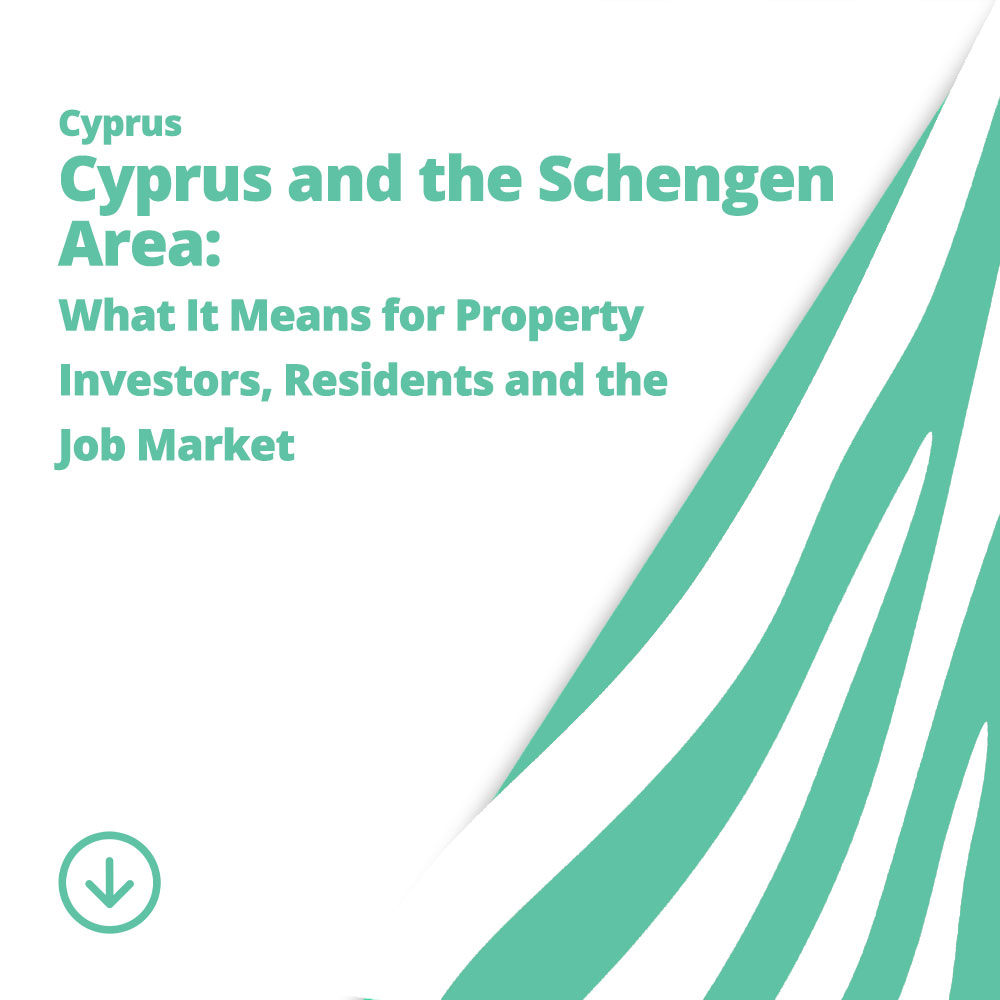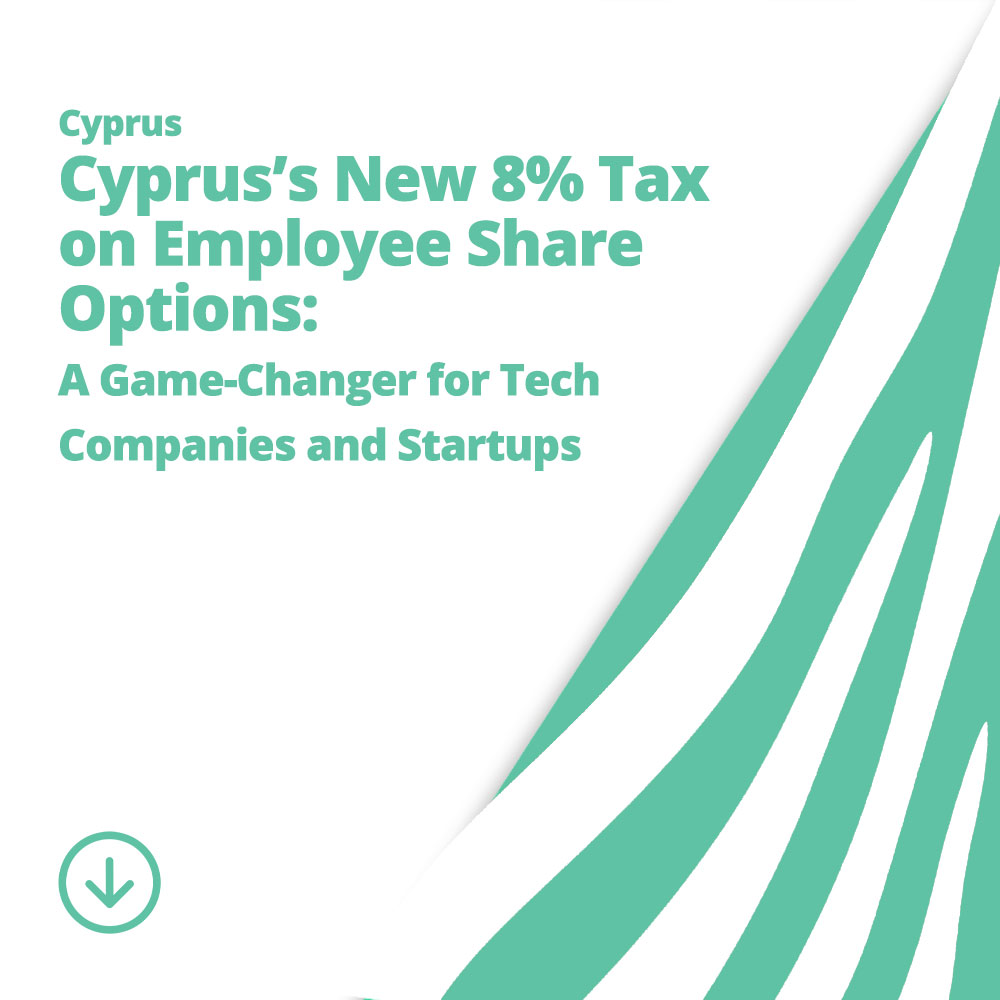Types of Permits and Visas for Non-EU Employees
Cyprus offers several paths for work permits for non-EU workers, depending on the role and duration:
Employment Permit (Temporary Residence & Work Permit): The standard long-term permit allowing a non-EU national to live and work in Cyprus for up to three years mip.gov.cy. The employer must apply on the employee’s behalf. This route requires a valid job offer (minimum 6 months) and typically involves a labour market test (advertising the job to prove no local candidate is available) mlsi.gov.cy
Temporary/Short-Term Work Permit: For specialists on short assignments (often under 1–2 years). These use the same application but are granted for shorter contracts. (Short-term contractors still need a temporary residence/work permit from the Migration Department.)
Business/Investor Visas: The Startup Visa lets non-EU founders establish high-growth startups (valid through Dec 2026) mip.gov.cy. For established businesses, a Business Facilitation Unit (BFU) process (below) simplifies entry. Investors may also qualify under other immigration permits (e.g. “Immigration Permit for Investors”).
EU Blue Card: A special scheme for highly skilled workers. Cyprus introduced the Blue Card in 2024 to attract talent in ICT, R&D, and other key fields. To qualify, an employee needs a degree (or 3+ years’ experience in ICT) and a job offer with a high salary (national threshold set at €43,632/year lexology.com).
The Blue Card grants fast-track family reunification (spouses/children can relocate immediately) and leads to an accelerated route to permanent residency and citizenship. (Note: initial quotas target ICT, pharma, maritime sectors lexology.com.)
Digital Nomad Visa: Cyprus allows non-EU remote workers to live on the island while employed by a foreign company. Applicants must earn a stable net income of ≥€3,500/month (after taxes) mip.gov.cy and have valid health insurance. The visa is granted for one year (renewable twice), and family members can join them with residence rights but without work authorization mip.gov.cy. This scheme is capped at 500 permits.
Each permit type has its own application process and criteria, but common requirements include a formal employment contract (in Greek, typically stamped by the Labour Department), proof of qualifications, and translations of documents.
Most residence/work permit applications are processed at the Cyprus Migration Department (Aliens’ Office) in Nicosia.
Business Facilitation Unit (BFU) & Foreign-Interest Companies
The Business Facilitation Unit (BFU) and Foreign-Interest Company (FIC) framework provide a fast-track route for companies of international interest. Under the 2022 strategy, Cyprus abolished headcount quotas for FICs and introduced one-month processing times mip.gov.cy mip.gov.cy.
Eligible firms (those with majority non-Cypriot ownership or ≥€200K foreign investment) register with the BFU (Ministry of Energy, Commerce & Industry) to gain priority status mip.gov.cy
Once BFU-registered, such companies can hire unlimited highly paid third-country nationals without the normal labour market test mip.gov.cy
Key points for BFU/FIC hiring:
Registration: A foreign-invested company must register via the BFU. Once confirmed, it enters the official Register of Foreign-Interest Companies mip.gov.cy. Existing FICs automatically benefit; new companies submit a letter of interest with business details to the BFU by email.
Investment & Ownership: Companies qualify if third-country shareholders hold the majority, or if foreign participation is ≥€200K. (Publicly traded companies, shipping firms, high-tech and biotech firms also qualify under similar rules.)
Labour Mix: Registered FICs must hire at least 30% Cypriot/EU citizens over five years mip.gov.cy. In other words, foreign nationals can be up to 70% of staff. These targets are checked after five years, with noncompliance handled case-by-case mip.gov.cy
Permit Validity & Speed: Residence and work permits can be issued for up to 3 years at a time mip.gov.cy. Approved applications are typically processed within one month if complete mip.gov.cy – a major improvement from older 4–6 week estimates.
This fast-track process applies to high-skilled key personnel (min. gross salary €2,500/month, with degree or equivalent + ≥2 years’ experience). Support staff (paid under €2,500) are still allowed but capped at 30% of support workers.
Exemptions and Benefits: For BFU key personnel, the usual labour market test is waived. Employers no longer need to prove a local hiring failure. Spouses of key personnel enjoy immediate work rights without testing.
Family reunification is also streamlined for FIC employees (spouses and dependent children can join their sponsor). In short, BFU registration grants a one-stop-shop for company set-up, permits, and licenses.
Applying and Employer Obligations
1. Labour Market Test (if applicable): For general (non-FIC) hiring, the Department of Labour requires that employers advertise the role locally to show no qualified Cypriot/EU candidate is available mlsi.gov.cy.
This involves placing job ads in the Cypriot press and submitting them with the permit application. However, this test is not required for BFU-registered companies hiring key personnel or for Blue Card cases.
2. Work Permit Application: The employer submits a complete application to the Ministry of Labour & Social Insurance or Migration Department (depending on the route). Required documents typically include: a valid employment contract, the applicant’s passport copies, proof of qualifications, CV, the labour test evidence, and health insurance.
All documents must be officially translated into Greek mip.gov.cy. The employer also pays the application fee (~€70–80) and arranges for the employee’s biometric data collection (photo/fingerprints).
3. Visa/Entry Permit: Once the work permit is approved, the employee must obtain an entry visa (if needed) from the Cyprus consulate abroad. Highly paid FIC employees can apply for an entry visa directly mip.gov.cy. For support staff or other categories, the employer may instead secure an “entry permit” at the Migration Department prior to arrival.
4. Registration and Local Formalities: Upon arrival, the employee registers with the Cyprus Police (Aliens’ Register) and collects the residence permit card. Employers must register the new employee for social insurance and with the Tax Department. Salaries and benefits must be on par with Cypriot workers in similar jobs mlsi.gov.cy, and deductions (income tax, social contributions) apply. If required, the employer must provide a bank guarantee or signed declaration to cover any repatriation costs for the employee mip.gov.cy.
5. Ongoing Obligations: Employers must renew permits before expiry (usually by re-submitting to Aliens’ Office) and notify authorities of any job changes. Under the FIC scheme, a highly paid employee can switch to another BFU-registered employer within one month of leaving mip.gov.cy. If an employee leaves Cyprus, a final declaration to the authorities may be needed.
Labour Standards: Cyprus law mandates that non-EU employees enjoy the same working conditions as locals mlsi.gov.cy (e.g. working hours, holiday, termination rules). Complaints over violations can be filed with the Labour Department. For the employer, this means ensuring contracts comply with Cyprus labour law and all payroll obligations are met (including minimum wage if applicable, overtime pay, etc.).
Residency, Family Reunification and Longer-Term Settlement
Once a work permit is in place, it grants the holder a Temporary Residence Permit (the “pink slip”) for the duration of employment (up to 3 years) mip.gov.cy. This permit is renewable. After the first year, many non-EU employees become eligible to apply for family reunification.
Key Personnel (BFU/Highly Skilled): Spouses and children can join immediately. Family reunification is fast-tracked: spouses of high-paid employees get residence and work rights without labor-testing. If married less than a year, the spouse can apply for a dependent visa until reunification criteria are met.
EU Blue Card: Blue Card holders can bring their immediate family (spouse and under-18 children) without delay. Dependents receive linked residence permits with similar rights to reside and work. After 33 months of Blue Card status, the employee can seek long-term residency (with Greek language requirement); after 5 years, citizenship is possible.
Digital Nomads: Family members may accompany the nomad for their visa term, but they cannot work in Cyprus mip.gov.cy.
General Employees: Once employed for at least one year, a third-country national may apply to bring dependents (spouse/children) under family reunification rules (subject to demonstrating subsistence). The standards here mirror those for other categories, though in practice spouses often are allowed to work after securing their own permits.
In all cases, family members must apply in Cyprus at the Migration Department. It’s essential for employers to advise hires on timing the family visa application. Overall, Cyprus provides clear pathways for dependents, making relocation for entire families feasible.
In Summary
Cyprus now offers a clear, modern framework for hiring non-EU talent. The Business Facilitation Unit and Foreign-Interest Company regime eliminate old bureaucratic hurdles, allowing firms to recruit skilled internationals quickly and for longer terms.
The new EU Blue Card provides a high-end option for top experts, and niche schemes like the Startup and Digital Nomad visas add flexibility.
Disclaimer:
The information provided on this page is intended as a general guide only and should not be considered legal or official advice. Work permit, visa, and immigration regulations in Cyprus are subject to change by government authorities.
Readers are strongly advised to consult the Cyprus Ministry of Labour or relevant official sources for the most up-to-date and accurate information. Emerald Zebra does not assume responsibility for any decisions made based on this content.
Partner with Emerald Zebra
At Emerald Zebra, we support employers in Cyprus’s fintech, tech, finance, and iGaming sectors in sourcing and securing exceptional international talent, including non-EU professionals.
While we do not process work permits ourselves, we work closely with clients and candidates to ensure the hiring process runs smoothly from the very first engagement.
From advising on offer terms that align with visa eligibility, to preparing candidates for relocation and supporting their onboarding and integration, our team provides the guidance and attention needed to make global hiring a success.
We understand that moving to a new country is more than paperwork, it’s about people, families, and futures.
Partner with Emerald Zebra for trusted recruitment, relocation awareness and long-term talent support.
CONTACT US
Key FAQs for Employers
Related Guides & Resources
Looking to hire now or planning ahead?
Book a Hiring Consultation
Book a 30-minute consultation with our team to discuss your hiring goals, budget, and timeline.




